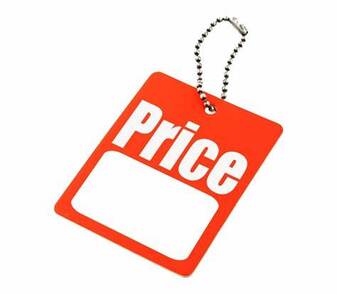 Pricing your book – is it an art or a science? I’m not asking you to pick a side; I’m only offering an opinion. Take it or leave it, but before you make up your mind, you have to understand two things. First of all, there is the economics of pricing. Then there is the psychological aspects of pricing; what assumptions do people make when they see a price tag on a product? Let’s start with the economics of pricing. If you are a big publishing house, there is a lot you have to pay for before the product (book) goes on sale. First off there are the publishing rights for the book – what the author wants for selling his or her soul to Mammon. Many new authors won’t get that, they’ll just be offered royalties based on sales. But a bestselling author can charge a hefty fee up front for giving a publisher exclusive rights to their next book - or even several books.  Then there is the cost of editing and proof reading in order to get the book into the best possible version of itself. Add to that cover design, printing and distribution and the publisher has already invested a considerable amount of money that must be recouped. Then there is the cost of marketing, because nobody is going to buy a book if they don’t know it exists. Finally, there are all the “back office” costs that must be recouped: HR, accounting, IT, rent, utilities, etc. What are known as “overheads” but without which no business functions efficiently. Put that all together and there is a lot of money to be recovered and publishers want their money back quickly, because they have shareholders who want a dividend at the end of the year. Consequently, publishers price high because they know that once a book has been out for a while, people lose interest in it because there are other, newer titles coming out all the time, so they must cover their costs and generate a profit in the shortest possible time. 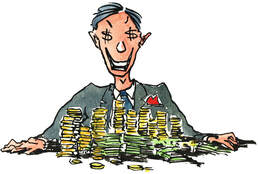 All that marketing is aimed at getting the book into the best-seller list as quickly as possible, so that sales gain some “momentum”. Readers are more likely to buy a book if they think that a lot of other readers have already bought it and that is what the best-sellers list tell them. And there was you, thinking that the best-seller list followed sales, when they are really leading them. So, when you see a book with a list price of, perhaps, £20 ($22) for a hardback, £13 for a paperback and maybe £12 for the Kindle version, all that stuff is what you are actually paying for – not the words on the page. The author will probably receive less than 10% of the sale price for each book and their agent takes a cut of that, reducing it further (are you still sure you want to be published by a big publishing house?). 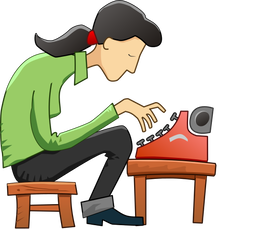 But you are an “Indie” author. You don’t have all those costs to meet before your book goes on sale and you don’t have to recover them quickly in order to satisfy shareholders. You can charge what you like. Therefore £5 for a Kindle version and maybe £8.99 for a paperback doesn’t seem unreasonable. You aren’t greedy – so as long as you make some money from your book, you are happy. Well, you may need to rethink that a little bit. You really need to market your book if you want it to sell and if you want to sell more than a handful of copies, you may need to spend some money on marketing. That means pitching your price at a level that will allow you to cover the marketing cost. Either that, or you will have to settle for a smaller slice of the cake.  But what about the psychology of pricing? What does the reader infer from the price at which you sell your “product”? Unsurprisingly, there have been books written on the subject. I’m not going to name any as I haven’t read them, so I don’t know if they are any good. But if you are interested, Google “Psychology of book pricing” and they’ll show up in the results. But I did find this blog by Thomas Umstattd Jnr, written in 2020. For a start, Umstattd reminds us that price is so important that it has been included as one of the “P”s of the marketing mix. That means it has to be taken seriously as a subject in its own right. 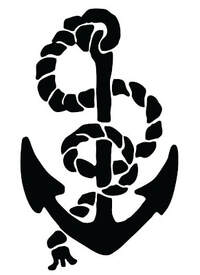 But the real issue on book pricing is what the reader compares the price to. Let’s imagine that it takes 10 hours to read a book. What else could the reader do for 10 hours, and how much would that cost? That is the comparison that readers make when they buy a product. They mentally say to themselves “If I spend my money on this, would it give me as much fun as spending my money on something else?” This is called “anchoring”. They anchor the price they are willing to pay to read your book against the cost of another type of entertainment (or another product) and form an opinion on how good a bargain it is by comparison. If they are browsing books on Amazon or in a bookshop, you are already halfway to winning the sale, but there is still a choice to be made – your book or someone else’s. That suggests that the lower the price you set, the better comparison and the more books you will sell.  But, of course, the anchor point is only part of the story. Because you have to tell your readers that, whatever comparison they are mentally making, your book is going to represent better value. You have to guide them into making that decision because, otherwise, they may conclude the opposite and not buy your book. Umstattd describes a number of ways you can use your marketing ‘copy’ to influence readers into perceiving that your book represents good value for money. I won’t repeat them here but, intuitively they seem to be good suggestions. But readers don’t just want something to read, they want to read a “good” book; in other words, they want quality. The price should indicate to the reader that they are getting that. It means that setting a low price isn’t always a good strategy. 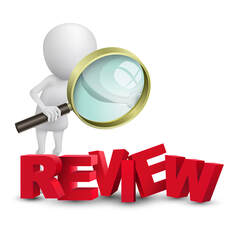 But at the same time, readers will want someone else to tell them that your book is good, so the reviews have to justify the price. If you are only getting 3 star (or lower) reviews, then you can’t charge a premium price for your book because readers won’t believe they are getting “quality” because other readers are saying they aren’t. If you aren’t getting any reviews at all, then you are really in trouble. And if the reader is paying a higher price for the book thinking it is a quality product, then the content has to match the price. It goes without saying that the story has to be excellent. It also has to be well edited, free from typos and grammatical errors and the cover design has to be more than just the basic offerings chosen from the KDP menu. If they aren’t getting that interior quality, the chances of selling other books to the same reader are slim. There is a way of making money by setting a low price and that is to write a lot of books. There are readers who will accept a loss of quality (even in the storytelling) in return for a cheap read. Making 10p a copy on 5,000 book sales is more profitable than making £1 per copy on 100 sales. And you get the bonus of there probably being more reviews posted about the books. 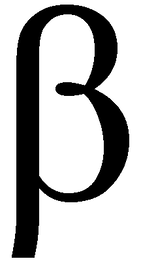 But that is a decision that you have to make for yourself. But you don’t have to make it blind. If you have beta readers, one of the questions you can ask them is how much they would have been prepared to pay on Amazon to read the book if they’d had to purchase it. You will get a range of responses, but you can average them out to give you an indicative price. This blog, on the AuthorImprints website, also takes a look at how to price your books and offers some indicators. One thing seems clear, if you are just starting out, selling your book cheaply in order to generate reviews seems to be a recommended strategy. Once your books gain in popularity and gains positive reviews, you can always increase the price to improve your royalties.  Then there is the 99p (99c) “special”. KDP allows you to reduce the price of your book for up to 5 days, providing it is subscribed to KindleUnlimited. That can be used, in conjunction with advertising, to generate sales because people are more inclined to say “why not give it a try?” at that price. This is especially good if you write a series of books. By heavily discounting the price of Book 1 of the series, people are more likely to by Book 2, 3 etc if they enjoy it. And you have nothing to lose, because if your book isn’t selling then reducing the price makes no difference because 100% of nothing is still nothing. And, finally, there is the “freebie”. I’m not talking about giving your life’s work away for free, just letting people have a taster of what they could get if they buy your life’s work. The freebie is usually a prequel or other introduction to the main series of books. Giving it away for free is a way of generating interest in the main series. But be warned: the freebie must be of at least the same quality as the full book, because even if people are getting it for free, they will still be judging you as an author and you can’t risk that judgement coming back negative. But if the reader likes your freebie, they may buy the book and give it a try. I can say from personal experience that I have bought books off the back of free ones. If you have enjoyed this blog or found it informative (hopefully both) and want to be sure not to miss the next edition, just sign up for our newsletter by clicking the button below. And we’ll even send you a free book for doing it.
0 Comments
 In a recent blog I made a statement to the effect that there were only 7 basic plots for books. It appears that I was right. Experts think that there are seven basic plots for books. I would throw in an 8th, but I’ll get to that later. The idea was developed by someone called Christopher Booker, who carried out research across a wide selection of books and then published his results in a book (what else) entitled “The Seven Basic Plots: Why We tell Stories”, published in 2004. This was no passing fancy. It took him 34 years to write. Amongst his other credits is that he was one of the founders of Private Eye magazine. He has nothing to do with the Man-Booker Prize which is awarded for literature. 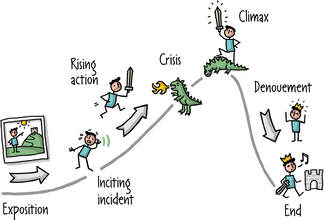 As well as the 7 basic plots, Booker came up with the idea of the meta plot, that is the basic structure which the majority of books follow. This breaks down into four distinct phases. Phase one is the call to action, in which the protagonist is drawn into the adventure to come. Some go willingly, like James Bond, while others, like both Bilbo and Frodo Baggins, go less willingly. Phase two is the frustration stage, where the protagonist struggles against the forces arrayed against him (or her) in order to resolve the problems he is faced with and win the day. During this stage they discover their weaknesses, which they must overcome and also, usually, unexpected strengths. In the nightmare phase all hope is lost and all seems to be doomed. The protagonist may come close to death and is certainly in despair, though quite how this works for plot type 5 (see below) I’m not sure. Finally, we reach the resolution stage, where the protagonist, against all odds, wins the day and earns the title of hero. Again I’m not so sure that this works for plot type 6 (also see below). It doesn’t matter how many other characters there are in the book, it is with the protagonist that the reader’s thoughts and emotions ride. If he or she doesn’t succeed, then the story doesn’t succeed. Even if the protagonist dies at the end, their death must be a sacrifice to gain their success. Do you recognise those four phases from the books you read or write? I must admit that I find it hard to think of any book that doesn’t conform to that pattern So, what are the 7 basic plots that Booker identified? 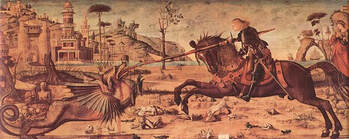 Plot 1. Overcoming the monster. This might be a real monster, such as the Minotaur favoured in Ancient Greek literature, or it may be a figurative one: Big Business, Corrupt Government, Rogue CIA agent, etc. A lot of Greek literature focuses on battling monsters, but it has stood the test of time. H G Wells used it in War Of The Worlds and Michael Crichton in Jurassic Park. The ‘monster’ is also present in stories such as George Orwell’s 1984 and the Jason Bourne and Jack Reacher books. Just because it doesn’t have horns or a tail it doesn’t prevent it being a monster. Plot type 1 is, of course, a staple of the horror story genre: Frankenstein, Dracula, Halloween, Friday The Thirteenth. However, I used it in my World War II series, Carter’s Commandos, where the monster is the Nazi regime in Germany. 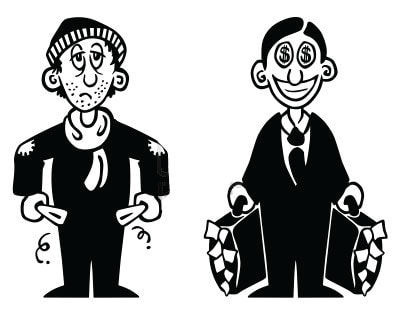 Plot 2. Rags to riches. The most obvious (for me) examples are Dicken’s Great Expectations. Aladdin, The Prince And The Pauper etc. First of all the protagonist comes into great wealth before losing it all and then having their fortunes restored after they have learnt a significant lesson. There is usually a moral to the story, especially around hubris and not abandoning one's real self. 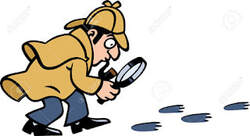 Plot 3. The quest. This is much loved by the writers of fantasy novels and I used it in my Sci-Fi series. With the search for the magic sword, or whatever, also comes personal growth. The protagonist never comes out of a quest unchanged in some way. Its origins are as distant as Homer’s Iliad and progress through history with A Pilgrim’s Progress, Lord Of The Rings, Watership Down, etc.  Plot 4. Voyage and Return. Similar, in some ways, to the quest, the protagonist must leave his home in order to achieve something and, again, returns changed in some way. One of oldest versions of this is Homer’s Odyssey, but perhaps the best known of these is the Lord Of The Rings prequel The Hobbit. Other examples include Gulliver’s Travels and The Wizard of Oz. It is the principal feature of this genre that the protagonist isn’t (necessarily) financially enriched by the journey, but is spiritually enriched. 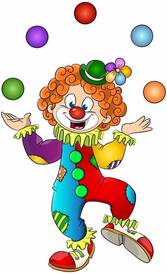 Plot 5. Comedy. Is this really a plot in its own right, I wonder? Comedy can be inserted into almost any plot, even a tragedy if it’s handled correctly. That’s why we refer to “black comedies”. The protagonist is usually a light, cheerful character to whom life frequently hands the dirty end of the stick: a good person to whom bad things happen. However, they stumble along and emerge triumphant at the end, often through luck rather than judgement. Mr Bean or any Norman Wisdom film provides examples. 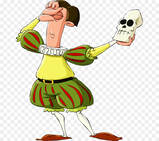 Plot 6. Tragedy. In Ancient Greek theatre this was the partner of comedy as the Greeks only did two types of theatre. Again, I would dispute this being a plot in its own right. Most stories can include a tragedy or two. The protagonist either has a major character flaw which they are unable to identify in themselves or they commit an act for personal gain which has unforeseen consequences and which spirals out of control. Either way it doesn’t end happily. There are many stories that fit this genre: King Lear, Romeo and Juliet, Macbeth, Bonnie and Clyde, Anna Karenina. This isn’t so popular in modern fiction and film as the public prefers a happy ending, so nowadays the inherent tragedy turns to success in the final chapter. While it was always normal for the protagonist to die at the end of a tragedy it is far more normal, now, for them to live. Not only will they live, they will also get the girl (or boy). 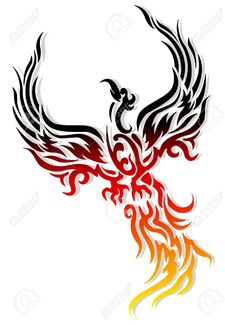 Plot 7. Rebirth. This is the plot for any story in which a villain or an unlikeable character ends up as the hero. It involves the protagonist going through an experience that changes them radically in some way, making them a “new” person. There can also be an element of this in some of the other plots, particularly 3 and 4. Here we find A Christmas Carol (not my alternative version), Beauty And The Beast and Despicable Me. Now we come to my additional plot, Plot 8: Romance. Boy meets girl, boy loses girl for some reason (OK, girl can also lose boy), boy and girl either struggle to get back together, or fight against the inevitable attraction, and finally get back together again at the end of the book (and, of course, there are LGBTQ+ equivalents). This is the territory of Mills and Boon and Barbara Cartland, but has been used by many other authors. In which other genre would Pride And Prejudice fit?  Now, here is the challenge. Can you think of any book that doesn’t fit into one of those 7 (or 8) categories? I have tried and I can’t think of any. If you are an author, have you ever written a book that doesn’t fit into any one of those categories? Would you ever try? An interesting thought is that we might each be living our lives in one of those ways. In other words there are only 8 life stories. That sounds a bit scary, as we all consider ourselves to be unique in some way. However, much as that idea both scares and appeals to me, I have no evidence to back it up so I’ll leave it there. What is of considerable interest to me is this idea of change. The majority of the plot lines described require some form of change to be undergone, in order for there to be a happy ending. This is where the story and real life part company. As a species we aren’t good at changing. If we were we wouldn’t keep repeating the mistakes of the past that lead us into all sorts of messes, up to and including war.  This is where the author often views life through rose tinted spectacles. Their protagonist always undergoes the change, however reluctantly, whatever it is and grows with the experience. In real life this so rarely happens. I’m not saying that it doesn’t happen, because some people really do undergo change, though not always for the better. But for most of us life goes on the same day after day as we curse our bad luck rather than changing our behaviour as a result of experience. So, if there are only 7 (or 8) basic plots for books, why do we keep buying books? After all, once we have read one book from each plot type we have read them all, haven’t we? Well, this is where the skill of the author comes in. He or she makes us believe that their story is both unique and original. "It is the author that makes the difference." Firstly, they will mix and match the plot types to give variation to them. As I suggest above, a quest can also be a journey, and frequently is. Sling in a romance and a bit of personal growth and you tick the boxes of another two types. However, that still limits the number of stories available (Just over 40,000 by my calculation). Yet literally millions of books have been written. It is the author that makes the difference. The skilful author makes you believe, through his or her mix of character and plot, that their story is unique. All the great authors have done this. It is called “finding one’s voice”, in other words saying something different. It is hard to say which authors will find their voice and which will never be heard, because this is down to the reader to judge. But what is clear is that if the reader wishes to find a new voice to listen to they won’t find it by reading what everyone else is reading. A new voice can only come from a new author. If you have enjoyed this blog or found it informative, why not be sure not to miss future editions. Just sign up for our newsletter - and you can get a FREE ebook as well. Just click the button. 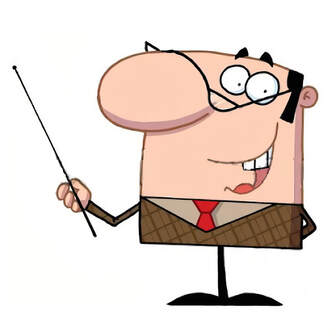 In last week’s blog I featured questions that should never be asked of an author. I received some comments that I was being a trifle sarcastic, harsh even, as people were simply being curious. So, to restore some balance, here are some questions, with my answers, that I don’t mind being asked. I must stress that these are my opinions and other authors may answer these questions differently. When it comes to writing, there are few hard and fast rules, there is only what works for the writer.  1. What is the major challenge for you as an author? Coming up with a fresh approach to a story. Since Homer wrote the Odyssey just about every story there is to tell has been told many times over, so for the modern author there is little they can do except find a new way to tell an old story. There are really only 7 plots for stories, and even then there are similarities and cross overs, so each author has to take one of those seven plots and find a new angle. Perhaps the best modern example is the Harry Potter books by J K Rowling. Stories about wizards are nothing new (Merlin, Gandalf), neither are stories of boarding schools (Billy Bunter, Mallory Towers), but a story about a boarding school for wizards, that was something new.  2. How do you work out your plots? The truth is that I don’t really know. I have an idea for a story and then I start to write. What happens is often as much of a surprise for me as it is, I hope, for the reader. Of course, I have a general idea of where the book is going to end up, but not much of an idea of how it will get there. My Magi sci-fi series is essentially a quest. But quests that go straight from A to B aren’t very interesting. Imagine if Frodo Baggins and Sam Gamgee had gone straight from the Shire to Mount Doom, it would have been a pretty dull story and you would never have heard of J R R Tolkein. So they have many adventures along the way and meet many other characters. The same applies in my Magi series. Each of the nine books is a story in its own right before An Kohli, my protagonist, can complete her quest. If she didn’t it wouldn’t be a series of books, it would be just one very short book. Sometimes I will create a situation and not know why. I don’t worry about it at the time, because I can always edit it out if I don’t need it or it doesn’t work, but I often surprise myself there as well. In “The Warriors: The Girl I Left Behind Me” I introduced a character called Sergeant Major Smith, whose negligence leads to the death of a soldier on a rifle range. I didn’t know why I had done it, but it worked as far as it went. Later in the book, however, I wanted to set up another tragedy and found that I had unwittingly created the character who would enable the tragedy to come about. So, my plots often surprise me as much as they surprise everyone else. 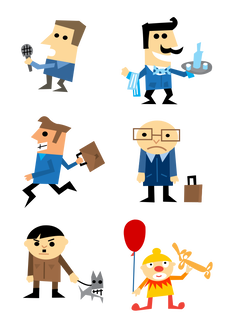 3. How do you create your characters? It’s a bit like building a house. I start with the foundations and work my way up to the roof, before decorating and laying the carpets. The first thing I decide is what sort of a character they are. I don’t like wholly good or wholly bad characters, so I tend to think of them in shades of grey. In The Magi I created a character called Den Gau. He is a bit of a coward, but when the chips are down he surprises himself and everyone else by stepping up to the mark. These are the sorts of characters I find interesting and I hope readers do as well. Next I usually write down a physical description: gender, height, build, hair colour, physical appearance, style of dress etc. That gives me a framework on which to hang everything else. In writing sci-fi this can be fun, because I can let my imagination run wild. Then I need to understand what motivates the character. One of the things I dislike about much modern fiction is that the antagonist, the baddy, is usually such a one dimensional figure in terms of their motivation. We are supposed to believe that they are bad just because we are told that they are bad. I don’t believe that people are born bad, so I have to understand what made them that way. To portray all bankers as being greedy, for example, is as shallow as a puddle in the summertime, so I need to know what made my greedy banker so greedy. After that I will start to layer on some character traits, kindness or cruelty, bravery or cowardice, pride or humility. As with motivation, it isn’t one size fits all. These are polar opposites on discrete axes and most people sit somewhere in between, so it is up to me where along these axes each character sits. For my character of An Kohli I have given her a very strong code of ethics, but if she stuck rigidly to them I wouldn’t be able to make some of the plot work, so I have to let her bend her own rules from time to time. But how far can I let her do that before she fails to be believable as an ethical character? Not everything I have described will make it onto the page, but I have to understand it all if I’m to create believable characters and this is especially true if they are recurring characters in a series of books, because readers who follow the series will expect the characters to remain consistent in their behaviour. We would never accept it of James Bond, for example, if he suddenly started to take bribes to walk away. 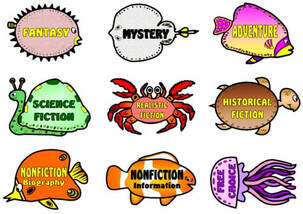 4. Are there any fiction genres you won’t attempt to write? The sorts of books I enjoy writing are the same as I enjoy reading. I’m very much action adventure oriented, so that is what I write. I may locate my stories in outer space, but they are still essentially action adventures. I won’t, therefore, try to write romantic fiction. There is nothing wrong with it as a genre, but I don’t read it and I don’t think I would be good at writing it. The same applies to erotica. Most erotica is actually pretty boring and I’m not sure why it sells so well. For me it sits in the same zone as voyeurism, but without the risk of being arrested for being a peeping tom. I wouldn’t write a western for the simple reason that there is a lot of specialist knowledge required to write it well. Most western fans know their subject inside out and they will spot a faker at a hundred paces. I am a lover of historical fiction but the demands of research for that are considerable. I discovered this when I set out to write a biography of my father’s war service. However, once I had done the research for that, I found I had enough material for a whole series of books set during World War II. 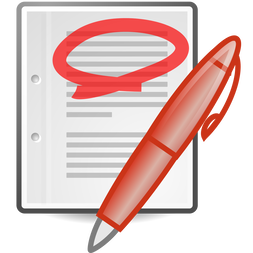 5. How do you go about editing your books? Any mother will tell you that there is no such thing as an ugly baby and writers feel much the same about their books. To go back and try to judge a book for oneself after taking between 3 to 6 months to write it is very difficult, but it must be done. Any author who is struggling to find a publisher is probably struggling because they haven’t been critical enough in their editing. I start with the simple things: typos, spelling, punctuation and grammar. I won’t get everything right even then. You can spot a self-published book from a hundred miles because it will be littered with simple errors that the author failed to spot. The next step is to take each scene of the book and try to assess whether it really works. This is the difficult part, because self-criticism is so hard. Some authors go the other way and slash and burn their manuscripts, practically destroying the book and having to go back and pretty much re-write the whole story. To avoid this, I do an initial critical edit of each chapter after I complete it, so I’m not wasting lots of time. There are two critical elements I try to eradicate. The first is “show vs tell”. Think of this as the difference between watching a football match live and listening to a match summary from Chris Kamara. In “show” the author paints a picture of what is happening within the story, so that the reader can visualise it. But with “tell” the author is merely presenting a report of what happened. It is the most common criticism levelled against first time authors and again, self-published authors suffer the most from the affliction. "it is essential to get an independent person to read the book " My final edit is always of dialogue. I try to write conversations the way people actually speak, because that is going to be the most authentic, so it is important to play those conversations back in my head, to make sure I have achieved that goal. I sometimes find that I have gone off on long lectures, which isn’t something that is allowed to happen in real life because the listener usually interrupts or falls asleep. There is an exception to that. My Carter’s Commando novels often feature military briefings and these provide a way of providing a lot of background material behind the historical context of the story I am telling. However, real life briefings rarely contain so much detail. They focus more on what is going to happen, rather than what has gone before. After that the manuscript goes off to my publisher for more editing. That is much more revealing as it is a fresh pair of eyes that is interpreting what has been written. So, if someone can’t take criticism, it’s best for them not to become a writer. If you want to self-publish then it is essential to get an independent person (or better still – people) to read the book and provide honest feedback before publication. Friends and family aren’t a good choice, because they want to be kind, which is no help at all. 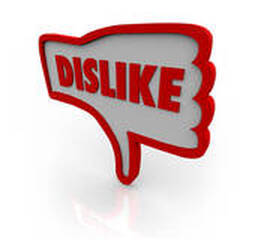 6. What do you think about bad reviews? If you can’t take criticism, then it’s best not to read reviews because they aren’t all going to be good. And our friends the internet trolls aren’t above leaving terrible reviews for books they have never read. Not everyone will enjoy a book and if someone doesn’t enjoy it then their opinion is as valid as those that did enjoy it. Some bad reviews can be very helpful. If several people are saying the same thing it is worth paying attention and trying to fix the problem. The worst reviews are those that don’t tell the author anything. Saying “I hated this book” isn’t helpful, but saying “I hated this book because….” can be. If you are a reader and you enjoy a book, please do submit a review. Sharing your pleasure helps the author. It doesn’t have to be fancy; a simple “I enjoyed this book” is as good as a 500 word essay. If you enjoy the food at a particular restaurant you tell your friends, don’t you? So why not tell your friends about books you have enjoyed?  7. What advice would you give someone who wants to become an author? Don’t do it for the money. You are likely to end up poor. Hundreds of thousands of footballers play in the amateur leagues, but only a couple of hundred footballers get paid thousands of pounds a week to play in the Premier League. The same applies to authors. About 99% of authors, even those published by the big publishing houses, earn less than the national average wage. Each year a couple of new names hit the big time, but they are a tiny fraction of the total number of people who write books. So if you love writing by all means become a writer, but do it for the love of it. Anything else is a bonus. Secondly, don’t assume that because people say nice things about your books it means you are a good writer. Friends and family don’t want to hurt your feelings, so they say nice things. The only real way to find out if you are talented is to get your books read by strangers. They will tell you the truth, and sometimes the truth hurts. 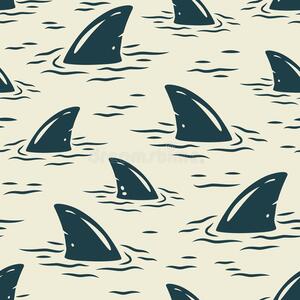 There are a lot of sharks in the publishing world trying to make money off the backs of authors, so: (1) Don’t pay publishers to publish you; they are supposed to pay you from your sales. (2) Don’t pay people to publicise your book. If your publisher isn’t doing that for you, what is he (or she) doing to earn their share of the income? Especially don’t pay those people who just Tweet your book title. They don’t produce sales. (3) There are some things worth paying for: (a) a professional critique of your work and (b) a good cover design, but look for references before committing yourself. Finally, just because your books don’t sell it doesn’t mean that your books aren’t good. Publishing is a very crowded marketplace, well over a million new books are published every year. It takes a lot to get noticed and some people never will be, no matter how good their books are. So, once again, do it for the love of it. If you have enjoyed this blog, ot found it informative, be sure not to miss any future posts by signing up for our newsletter. you can even get a FREE ebook just for doing it. Click the button below to find out how. 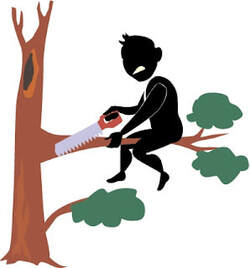 I have to thank Hannah Heath and Sue Falagade Lick whose blogs I have pillaged to find some of these questions, but they served only to remind me that I, too, have been asked them. I have added a few of my own and, of course, the answers are all mine. Q1. Are you still writing? There are many ways of answering this, most of which will be sarcastic. If I say I am a writer, or an author, then the answer will remain “yes” until I tell you that I am no longer a writer or an author. Q2. Is your new book out yet? My new book is always out, until I have a new new book, then the old new book becomes the previous book. 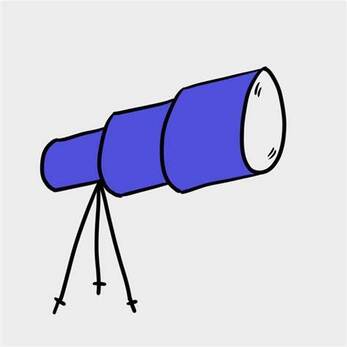 Q3. Where do you get your ideas? I find them in my breakfast cereal (sarcasm). Story ideas are all around us, all the time. What a writer has to do is pay attention to the world and find a way of turning the mundane into something interesting. Q4. Do you ever want to go shopping/to the beach/out to breakfast/(insert other distractions)? No. I’m too busy writing. Unless you want a game of golf. Q5. How about tomorrow? Still busy writing (unless you want to play golf). I’ll have time for diversions when I’m no longer a writer (or golfer). 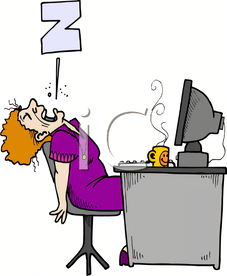 Q6. What do you do all day? Oh please! Q7. Would you collaborate with me on this idea I have for a book? Do you mean “Give up the work I know I can earn money from to work for you speculatively for free for 6 months and then give you half the royalties on whatever comes out the other end”? I think I’ll pass. Pay me and I’ll think about it.  Q8. How much money do you earn from writing? How much money do you make from what you do? You show me your bank statement and I’ll show you mine. But here’s a clue: I drive a 6 year old Hyundai and when I go on holiday I fly on budget airlines. 99% of all authors are like me (only the model of car varies). Q9. Can I get a free copy of your book? Yes, if you ask your local library to buy a copy and put it on their shelves, then you can borrow it for free. I do this for a living, not as charitable work. But I’ll sign your copy for free if you buy one. Q10. So, like, you're going to be the next Lee Child? I would like to say yes because he is a good writer, but the truth is I’m going to be me. I may be influenced by other authors, but the presentation will always be mine. Q11. You write sci-fi? Why don't you write something real? Sci Fi is just the vehicle I use to tell my stories. It allows the reader to see issues from another perspective. Imagine if you were an alien and arrived on Earth, what would you make of some of the things we do to each other and to our planet? What would you think of the way we might treat you? By the way, I don’t just write sci-fi. I have also written a fantasy, a political thriller, three action adventures, a 7 book series set during World War II and a parody of a Charles Dickens book.  Q12. How do you fill your time? (This answer may be accompanied by physical violence, so please stand well back) I sit painting my nails. What do you think I do all day? Have you ever tried to write a thousand words that are interesting to read and which keep the reader sufficiently engaged so as to want to read the next thousand? Q13. So which character is you? It’s the hero, isn’t it. It’s a thinly disguised autobiography, isn’t it? No it isn’t. That’s not how it works. Each major character is made up of a set of character traits that allows them to function within the environment that I create for them. If they are good it is because I make them good and if they are bad it is because I make them bad. Q14. So which character is me? The one that dies horribly in Chapter 1. Sorry, did I say that out loud? Please refer to Q13. I may borrow some character traits from people I know, but none of the characters are wholly one person or another. If I do base characters on real people’s character traits then they are usually mixed and matched to suit the story. 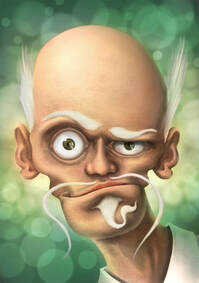 Q15. Writers are really weird. You know most of them go crazy? That's not strictly a questions but I'll answer it anyway. There is no such things as normal, so there is also no such thing as weird, other than in the purely subjective sense. As for going crazy, it’s only by writing that I actually stay sane. Sorry, does me holding this knife make you feel nervous? Q16. How do you go about writing a story? I have an idea, I sit in front of my PC and I start to write. It’s easy. I may change the idea as I go along, or I may stick with it. I may scrap the whole thing and go back to square one. There are no rules. It’s one of the reasons I enjoy writing. Q17. Can anyone be a writer? Yes, but if you are asking these sorts of questions, it probably means you aren’t cut out for it. 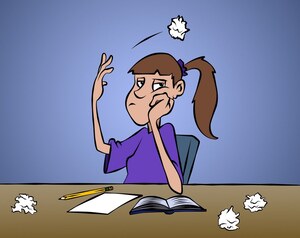 Q18. Do you ever suffer from writer’s block? Writer’s block affects many writers at some time, but there are ways of dealing with it. My own way is to take some time off writing and return to it refreshed, or when some new idea drives me back to the keyboard. There are also numerous other tricks that can be used, such as using “writing prompts” to get the words flowing, then diverting the flow back towards my work in progress. Q19. Would I like your books? (Variations include “would your books appeal to me?”) I don’t know. Why don’t you buy one and find out? It will cost you less than the price of two pints of beer and will keep you occupied for much, much longer. Q20. Would I have read anything by you? I don’t know. Look at the covers of your books; if my name is on any of them then, yes, you have read something by me. Q21. Will you put me in one of your books? Yes. Then I’ll kill you in the most horrible manner I can think of, then I’ll resurrect you so that I can kill you again. 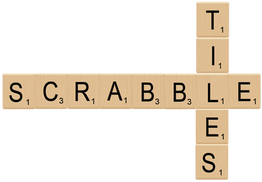 Q21. How do you come up with the names for your characters. Telephone directories. Except in my sci-fi novels. There the character names are created from a sort of Scrabble approach. Q22. When will you give up writing? When I’m dead or when I run out of ideas for stories, whichever is the sooner. If you have enjoyed this blog, or found it informative, be sure not to miss future editions by signing up to our newsletter. You will even get a FREE ebook just for signing. Click the button below. 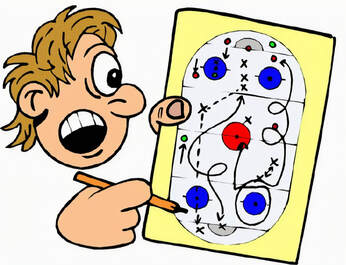 In last week’s blog we discussed marketing for the Indie author and, in particular, constructing a marketing plan. The blog was getting pretty long, so I didn’t say all I wanted to say at that time. What I did say was that the content of your plan lay in the old Rudyard Kipling quote “I keep six honest serving men (they taught me all I knew); Theirs names are What and Why and When and How and Where and Who.” Putting those words into questions helps you to decide the content of your plan: what you will say, who you will say it to, when you will say it etc. That is all good, but some people have never constructed any sort of plan at all, so this blog is aimed at them. How do you get from that Kipling quote to selling more books? For those of you who have written so many plans it is you who should be writing this blog, please feel free to tune out. Maybe go and browse our catalogue, which can be found on the ‘Books’ tab of this website. For everyone else, are you sitting comfortably? Then I shall begin.  The first thing you need when creating a plan is an objective, goal or desired outcome. Call it what you like, but it is a description of where you want to be by the time your plan has been delivered. For Indie authors this is usually quite simple to define – your goal is probably to sell more books. You even have a readymade measurement there to tell you if the plan is working – the number of books that you are selling after you have delivered the plan compared to the number you are selling now. But that is a big goal to achieve and you will need to do a lot of work to achieve it. What you also need to know is if your plan is taking you in the right direction. It might take you 3 months or more to achieve your goal and that is a long time to wait to find out that your plan isn’t working and needs to be re-thought. 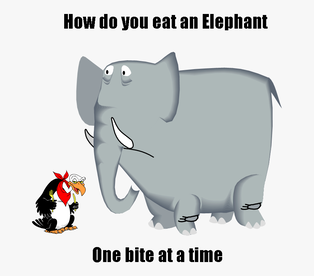 So you have to create sub-objectives, which you can tick off along the way to make sure you are staying on track for success. Believe me, if each step is successful, then the final outcome can never be in doubt. And if some of the sub-objectives still seem quite daunting, you can break them down even further. Remember the old maxim: “How do you eat and elephant? – One bit at a time.” (apologies to vegans). You may even want to run a few “pilot schemes” or “trials” to see if what you plan to do is actually going to work on a larger scale when you set the whole plan in motion and those trials also become sub-objectives. 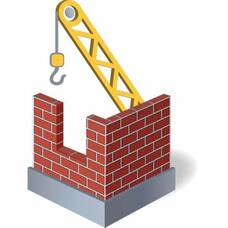 Build the walls before you try to put on the roof. Build the walls before you try to put on the roof. One of the things of which you have to be careful, is that you lay out your sub-objectives in the right order. For example, if you were building a house, “Put the roof on” wouldn’t appear in the plans until after “dig foundations” and “build walls”. You may need to spend a bit of time making sure your marketing plan is constructed in the right order, just like you would build a house. 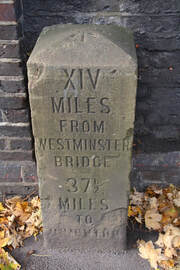 Last week we talked about getting some training in social media marketing, so that might be an early sub-objective in your plan. We also talked about writing your marketing messages, so trying those out on people might be another sub-objective. But basically, all you are doing is breaking down one very big and daunting objective into several smaller, less daunting tasks, then laying them out in a logical order. In project management we call the completion of sub-objectives or tasks “achieving a milestone” and it feels very rewarding to reach each milestone and tick it off your plan. But, just like real milestones, you have to know where they are, which means having some sort of measurement of achievement for each task. 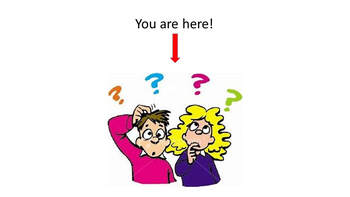 After all, there is no point in knowing “you are here” if you have no idea what “here” looks like. In the same way, you can’t know you have reached a milestone if you don’t know what a milestone looks like. A written description of what it will look like is the best way of recognising a milestone. For example, a description of the messages you want to send out about your book might read: “Write 7 sentences/paragraphs of up to 140 characters* that provide a clear indication of the book’s content., grammatically correct, correctly spelt and tested on sample readers.” You can see from the description that “quality” checks are built in. That is the sort of “product” or task description you could write for each sub-objective, so you will recognise your milestone when you get to it. 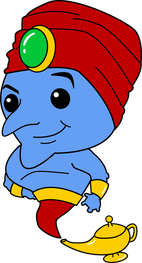 But all plans are meaningless if they don’t have resources assigned to them. A plan without the resources to deliver it is just a wish, a hope or a dream. These resources can include money, to pay for things such as advertising. But a far more important resource is information. You have to know the answers to those who, what, why etc questions you asked, so that you can apply your other resources in the right place at the right time. So one of your objectives is almost certain to be information gathering, or research as it is more commonly known. This will result in you not wasting your other resources (such as money) on the wrong activities. 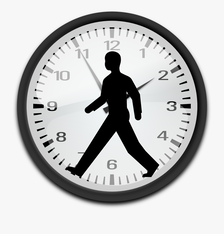 Time is another major resource. None of this stuff will do itself. Yes, I know, you’re a writer. You don’t want to have to spend all your time doing marketing. Which makes it all the more important that you don’t waste what time you are willing to expend on marketing, doing the wrong things. There is an old saying in quality management “Isn’t it amazing how people who don’t have time to get things right the first time they do them, always have plenty of time to correct their mistakes.” And if you are spending money, you can’t afford to spend even more money correcting mistakes by getting things wrong first time. So, all that research is critical to you avoiding getting things wrong the first time you try them.  The final resource I’m going to talk about is knowledge, which I have already touched on earlier. If you don’t really know what you are doing, you are going to waste your other resources on getting things wrong. “Trial and error” may teach you a lot, but it is an expensive way to learn. Invest in yourself, even if the investment is just time spent doing a free on-line course. We’re not talking about studying for a 3 year business management degree here, just a few hours learning the basics of social media marketing and trying out a few ideas to get a feel for what is right for you and your books. And once you have your marketing plan – you can use it again and again, refining it each time as you learn what works best and what isn’t working so well. Because you will have to keep repeating your marketing activity, because marketing messages soon fade from people’s consciences and you will always be looking for new readers who will buy your books, because nobody buys the same book a second time (except as a gift for someone else or because they forgot they owned it already). * We know that Twitter now accepts posts of up to 280 characters, but you need to make an allowance for the inclusion of a link to the book’s sales page and for hashtags. And, of course, character count isn’t an issue for Facebook posts, though people rarely read beyond the first few lines. For Facebook, think “elevator pitch”. If you have enjoyed this blog, or found it informative, make sure you don't miss future editions by signing up for our newsletter. We'll even give you a FREE ebook if you do.  The most common complaints from authors I follow on Twitter are about marketing their work. They either say how hard marketing is, or they ask questions about whether it is necessary to market their work – before going on to ask how to go about marketing. Last year we posted a series of blogs about marketing for the Indie author and there are many other bloggers out there who have shared their knowledge, so there is no shortage of advice available. But to deal with the first issue first, yes, marketing is hard work. But it is essential work if you are an Indie author because no one is going to do it for you. 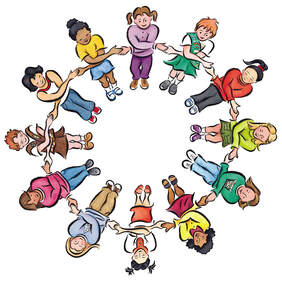 Small circles limit sales. Small circles limit sales. I’m not going to go back over the same ground again; if you want to know what I wrote about marketing you can find my blogs in the archive and if you want to know what other bloggers have said then just Google ‘blogs about how to market a book’. But I will offer some guidance here, just to whet your appetite and maybe prompt you to read a bit further. Let’s deal with the obvious, which is that the only people who are going to buy your book are the people who you tell about it. If you limit that to friends and family, then that is going to be your entire readership. 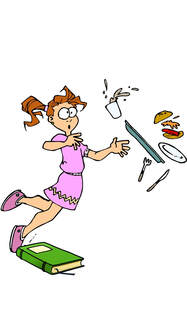 Marketing your book is about getting beyond friends and family to a wider audience and telling them about your book. On the optimistic side, your potential audience is global, but you have to find them because they won’t find you. I’ve said it many times in these blogs, but I’ll say it one more time. No one is going to stumble over your book by accident. Yes, it will show up in the search results on whatever book selling site you choose to use, but probably not on the first page of results, or even the second or third pages – and people looking for something to read very rarely get that far down the search results. So, what can you do about it?  The first thing is to find out how to market your books. If you don’t know what you are supposed to do, it becomes much harder to do it. And if you have heard that all you have to do is go on social media and make a few posts about it, then you have been misled. There is far more to it than that. OK, how do you learn? There is a very good website that offers free on-line courses, covering a wide range of subjects including social media marketing. Google “Futurelearn” and then search ‘social media marketing’ on their website. Most of the courses can be completed in a day if that’s the way you want to study them, but you can take as long as you want to finish them. Yes, it is time consuming to learn new skills, but floundering around in the dark and getting more stressed about why your books aren’t selling is far worse. It is better to light a candle than to curse the darkness (William L. Watkinson) – so light a candle of learning.  Like it or not - you need a plan. Like it or not - you need a plan. The next thing you need to do is to make a plan. Yes, boring, I know. But you can’t focus your efforts to get the best results if you haven’t got a plan. We’re not talking about constructing Gant charts and Pert charts here - you aren’t building a rocket ship. Pretty much the whole of your marketing plan can be written on one side of A4 paper – in big letters. 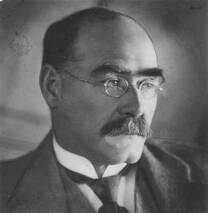 Rudyard Kipling - he had 6 good serving men. Rudyard Kipling - he had 6 good serving men. You may be familiar with the Rudyard Kipling quote “I keep six honest serving men (they taught me all I knew); Theirs names are What and Why and When and How and Where and Who.” Those 6 words form the basis of your plan. I’ll address them in the order they appear in the quote, for no other reason than that. So, ‘what’ do you want to say about your work? Having half a dozen, short clear messages to tell people about your work is essential. 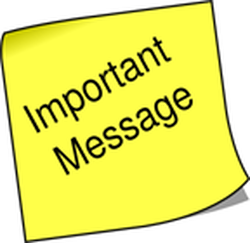 Why half a dozen (it could be more)? Because people get bored reading the same Tweet or Facebook post time and time again. You need to keep your message fresh. And your message needs to sell the sizzle, not the sausage. What do I mean by that? Well, a sausage is a pretty mundane foodstuff, so you have to sell the ‘image’ of the sausage that gets people’s mouths watering: the golden-brown sausage sizzling in the pan, sending out appetising aromas. If you think that sounds like a hard thing to do, then I suspect you shouldn’t be a writer. Creating written images like that (and better) is your stock-in-trade.  ‘Why’ follows neatly from What. With so many books on the market (millions of them), why should a reader choose yours? You have to tell them why. You have to have a USP (unique selling point); something that your book does that no other book can or will do for them. We call this the ‘story’ and it has to sound attractive. It helps if you understand who your readers are and what they are looking for, because that will allow you to target them with the USP that will appeal to them. Because it will be a different USP for readers of romance, compared to readers of SFF, to use one contrasting example.  ‘When’ is a tricky one, but you have to know when your readers are going to be on social media. It will be at different times for different types of reader. If you are writing YA or children’s books, then school hours are out. If your audience is mainly elderly readers, then forget the evenings, because that’s when they watch TV – and they go to bed earlier. So this ‘when’ issue is something you really need to think about. Tweets start to lose their visibility to users just 5 minutes after they’ve been posted. Facebook posts start to lose their visibility after about 25 minutes – so timing is important if you want your messages to be seen. Did you know you can schedule posts on Facebook and Twitter, so they can be posted on whatever day and at whatever time you want, not just when you are on-line yourself? Other social media channels may allow you to do the same – so use that facility. 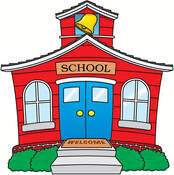 Every day is a school day! Every day is a school day! ‘How’ is the bit you really need to learn. There are good ways of promoting work and there are bad ways. If you think you already know the good ways, you can still learn the better and the best. Every day is a school day, as someone once said and if you already know everything – why are you reading this blog? 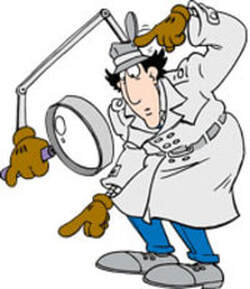 You have to search for your audience. You have to search for your audience. You may think ‘where’ is a simple matter – social media of course. Well, there is more than one type of social media, for a start and not all of it is good for all types of writing. As I said in a previous blog, if you write for children or YA, then there’s no point in being on Facebook and Twitter, because your readers are on Instagram and Tick Tok. Do some research to find out what sort of social media your readers are likely to use – then use it yourself. But also in the ‘where’ category are places other than social media. There is a whole raft of readers who get their book suggestions from sources other than social media, and it is beneficial for authors to use them. Local book shops, book fairs, public library events, even the village fete is a potential outlet for the entrepreneurial author. But if you don’t publish hard copy books, these will have a limited impact on the people who go to these things, because they will want to buy a copy at the time, not go back home and order on-line. Then there is local radio and your local newspapers – but you have to reach out to them, because they aren’t going to come looking for you. But they do have column inches or air time to fill, so they are usually receptive. And all this is before you consider paying to advertise, which is an option that is open to even the smallest purse. 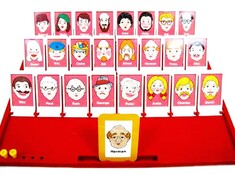 The last friend amongst the 6 is ‘who’. We’ve already touched on this to an extent. Who will buy your book? Not everyone who reads books will read the sort of books you write. I don’t read westerns, for example. There’s nothing wrong with westerns, they just don’t appeal to me, in the same way that paragliding doesn’t appeal to me. You have to know who your readers are so that you can focus your efforts on reaching them and not wasting time (and often money) sending out blasts of promotional material to people who will never buy your books. Some of them may never buy any books at all, let alone yours (we call these people “weirdos”). I know all of the above sounds daunting but, as Lao Tzu said a very long time ago, a journey of a thousand miles starts with a single step. And the best single step you can every hope to take is to go back to school and learn how to do your social media marketing better. Good luck with your marketing plan and please feel free to share your success stories in the comments section below. If you have enjoyed this blog or found it informative, why not sign up for our newsletter so you can be kept informed about future blogs. And you can get one of our books for FREE just for signing up. Click the button below to find out more. This is a story about some books that should be selling like hot cakes, but probably aren’t. Stick with it, because there may be lessons for the Indie author to learn here. I am reading the second book in a lengthy series, written by an Indie author. Like the first book in the series (and all the others) it is set during World War I and it has a lot of merit. The plot is generally good and the main character is engaging, with a good supporting cast of minor characters. As far as I can see, the author has done his research and that gives the book an authentic feel. 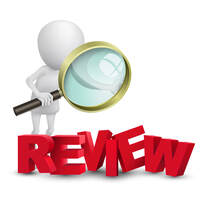 Under normal circumstances I would have reviewed the first book in the series and posted the review on this blog. It is part of what we do to help Indie authors. There is enough good writing in the plot and characterisation to allow me to give it a 4 star rating and, perhaps, even a 5 star if I’m in a generous mood. It’s all “boys own adventure” type stuff, but none the worse for that. Question: why am I talking about this book as though I’m not going to review it? Answer: because I’m not going to review it.  If I did review it and my review was an honest one, as it should be, I could give it no more than 3 stars and if anyone is going to sabotage this author’s work, it isn’t going to be me. For the same reason I’m not going to give you the title of the book or the series and I’m not going to name the author. Besides, why should I do what the author has done so admirably, by sabotaging his own work? The first book in the series had me screaming in frustration and the second book has me in shaking my head in disbelief. When it comes to editing and proof reading, it is awful. As we know, even books published by the big-name publishing houses have the odd typo or punctuation error in them, overlooked at the proof-reading stage by a professional proof-reader. If that were all I was talking about, there would be no problem and you wouldn’t be reading this blog. 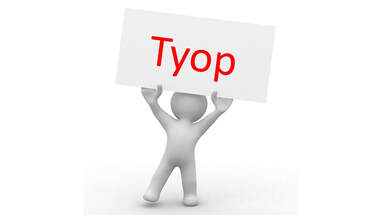 But I’m not talking about an error every third or fourth page, or every second page or even every page. I am talking about an error in every paragraph and sometimes more than one. There are punctuation errors, typos and the use of the wrong homonyms. In some cases, the errors are so bad they change the meaning of a sentence. To give one example, in an historical note the author uses the word ‘temerity’ when it is quite clear he means ‘tenacity’. Sentences have to be read twice or three times to decipher them because a lack of punctuation means they can be interpreted in more than one way and it is hard to work out which way the author actually meant us to interpret them.. So much for proof-reading. But it doesn’t stop there, because the editing or, more likely, the lack of editing makes the books difficult to read and impacts on the entertainment value.  In Book 1, so little happens in the early chapters that I was thinking of giving up reading the book out of boredom. It made me wonder how many readers had used the ‘look inside’ feature on Amazon and done just that, passing the book by to go and look for something that grabbed their interest a bit quicker. And it is a shame if they did that because, as I said above, the stories are quite good if you can just get passed these issues. Later, some of the descriptive passages become repetitive or rambling. In some places the paragraphs make it hard to follow the plot and in other instances the paragraphs don’t make sense. "And now we get to the moral of this story " To give another example to illustrate my point about the editing, at one point the author describes the light fading – when it was dawn and the light would be increasing. He probably meant that the darkness was lessening, or that the light was improving, but that’s not what he wrote. It’s the sort of thing an editor would point out and which is easy to correct. And now we get to the moral of this story and the reason I hope you Indie authors have read this far. Because these books deserve to be best-sellers but will never become so. The poor editing and proofreading make them appear amateurish. 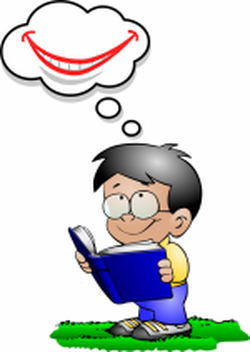 Now we come to a question that you might like to answer. How would your books stand up by comparison? Are you sabotaging yourself because you aren’t a good editor or proof-reader? It is entirely possible that you are if you aren’t getting other people to cast their eyes over your work. Both editing and proof reading take time, we know. And anything that takes time usually costs money if we want someone else to do it for us. So, how do we avoid the sort of mistakes that I have described above, but without it costing us anything?  You are not alone You are not alone This is where the ‘writing community’ can help. We can buddy up and look at each other’s work and tell the author which bits work for us and which bits don’t. At the very least we can spot the typos, punctuation errors and incorrect homonyms that I referred to earlier. And, best of all, we get to read a free book as well. If we are doing things properly, then we will be editing and proofreading our own work anyway, so all we would be doing would be expending the same amount of time doing it for someone else, while they do ours. It costs us no more time than it was going to cost us anyway. Here at Selfishgenie Publishing we have a golden rule that no book is published until it has been read at least 4 times by a minimum of two different people (that’s twice each, not 4 times each). If anything slips through the net after that, then at least we have done our best to prevent it. And if you weren’t going to edit and proofread your own work – well, you may want to read this blog again and see if there is anything you may wish to reconsider. If, by any chance, the author of the books I have referred to is reading this and recognises my references, please feel free to contact me (use the general enquiries email address given on our ‘contact’ page) and I’ll be happy to offer some feedback on the work. There is still the opportunity to withdraw these books from sale, sort them out and turn them into the best-sellers they could be. If you have enjoyed this blog and want to be sure not to miss future posts, why not sign up to our newsletter? And if you do, we'll send you a free eBook. Just click the button below to find out more. Just a reminder, we are open for submissions of new work. Just check out our contacts page for more information.
 All Indie authors need an advertising budget. There, I’ve said it. You may not want to read that and you may now be sticking your fingers in your ears and going “la la la”, but I’m afraid it’s true. Let’s start from basics. Nobody is going to stumble on your book by accident. It may be the best book ever written, but if nobody knows it exists then they can’t read it. 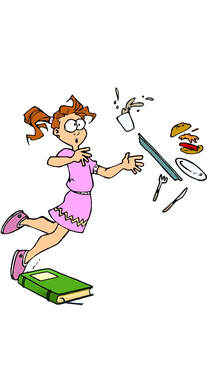 Nobody is going to stumble on your book by accident! Nobody is going to stumble on your book by accident! You will be aware that social media can be used to bring your book to the attention of a wider audience for free, but it has a limited utility. Once your post or Tweet about your book has been read by your “friends” or “followers” they will do one of two things. They will either buy the book (hooray) or they will ignore it (boo). After that, no matter how often you post or Tweet about your book, nothing will happen. The people who bought your book when they first saw the post aren’t going to buy it again and the people who ignored it first time around are going to continue to ignore it. This means you have to keep finding new “friends” and/or “followers” who haven’t previously seen your message and who will either buy your book or ignore it. And finding those people is a relentless slog which takes up more and more of your time. And your time is valuable. You should be spending your time writing new books, not trawling through social media trying to attract new people. 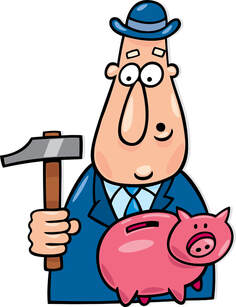 Which is where advertising comes in. There is a thing in commerce called “spend to save”. The basic principle is that if you spend money now on certain things, you will save money in the longer term. For example, if you spend £1,000 on replacing your existing light bulbs with more energy efficient light bulbs, you will save more than £1,000 over the next five years, thus repaying the initial outlay and making a profit. This is also known as “return on investment” (ROI). The same principle applies in advertising, though here you might call it “spend to earn”. If you spend £x on advertising now, you will earn £y back in sales, so the advertising cost is paid back and you get your ROI. This is something that is well understood across business. If advertising didn’t pay for itself, then all those adverts that we see on-line, on TV, in the cinema and that we hear on the radio, just wouldn’t be there. Advertising has to pay for itself or or nobody would do it.  But you are an Indie author. You don’t have much money. How can you possibly afford to advertise? Fortunately, the same social media we used to promote our book for free, also offers the facility to advertise that isn’t expensive. You may have 5,000 followers on Twitter, but a paid advertisement has the potential to reach millions of people. The same applies to Facebook and to all the other forms of social media. It even works by paying for advertising on Amazon. There are some good practices that should be born in mind if you are going to advertise and I’ll touch on these now. We have covered most of them in previous blogs, so we won’t go into detail here. 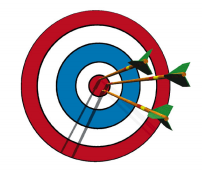 Target your audience. Make sure the advert is aimed at the right people. There’s no point in paying for your book to be promoted to people who don’t read books or who don’t read books in your genre. Time your advertising. Not everyone is on social media 24/7, so find out when your audience is likely to be on-line and time your advertising accordingly. Change your message. People get annoyed by repetition, so each advert should be different from the one before. This will require you to be creative – but you’re an author, you are already creative. Make your adverts eye-catching. People are more attracted to pictures than to words and they are more attracted to moving pictures than to still ones. 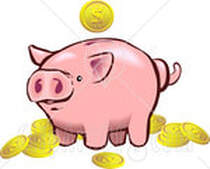 Think long-term. Every new reader that you attract with an advert is likely to stay loyal if they enjoy your book. So that’s a sale in the bag for your next book and all the others you are going to write – and you won’t have to pay for those sales. Save to spend. Set aside money from each sale to help pay for your next advert. I would recommend 10% minimum from the income from each sale. 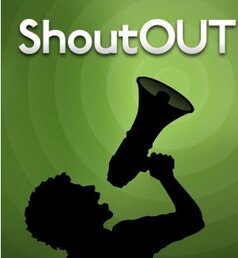 You shouldn’t waste money on those businesses (mainly on Twitter) who offer to promote your book to their gazillion followers. Their output isn’t targeted and there is very little evidence that it produces results. You might as well stand in the street with a megaphone shouting “buy my book”. In fact, you’d probably get more sales that way (along with a restraining order). How much should you spend? Well, a Facebook advert running for 4 days will cost about £25 ($30) and that should return you enough sales to justify the cost. Other social media channels and Amazon offer similar levels of pricing. How often should you advertise? As often as you can afford it. I would suggest at least one advert per month and if you can’t afford that, try for one very two months. Have I convinced you? If not, then there is only one thing that will. Give it a try, just once, and see what happens. Experience costs money, but for some people it is the only way they will be convinced. But, let’s face it, if your book isn’t selling, then doing nothing isn’t really an option if you want that to change. If you have enjoyed this blog or found it interesting, make sure you don't miss the next edition by signing up for our newsletter. If you do, you can get a full length novel for FREE. Just hit the button. 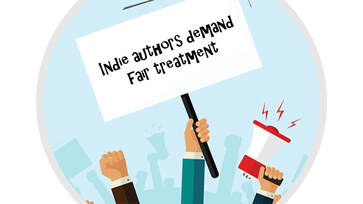 There is a subtle prejudice against Indie authors that isn’t present in other forms of creativity. I’m not talking about the big prejudices, like those involving race, religion, gender, sexuality etc. I wouldn’t want to lump this in with those as it doesn’t have the same sort of impact on those who suffer. No, I’m just using the word in its original meaning, which is to ‘pre-judge’. In other words, to make assumptions that aren’t based on any real evidence. That happens with the big prejudices in a big way and is more far reaching. Pre-judging an Indie author probably won’t affect their ability to earn a living, get housing or fair treatment by the police, so it isn’t in the same league. But it matters to the Indie authors, all the same. Indie authors are prejudged in a way that no other art form appears to be.  Imagine you are walking along the street and see a sign outside a pub. It says “Appearing here tonight, Fred Bloggs, musician. Entry £5.” Would you consider parting with a fiver to see him perform? There might be some questions you would want to ask, such as what sort of music Fred plays and what price the beer is at the bar, but I think a great many people would take a chance and part with their fiver. Or maybe if it said “Comedian Fred Bloggs.” Again, you might have a few questions, but you might well decide to go along. You would give Fred Bloggs a chance. 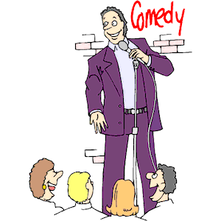 What you probably wouldn’t say is “Fred Bloggs has never had a hit record, so I’m not going.” Or “Fred Bloggs has never appeared on Live At The Apollo (a TV comedy showcase in the UK) so he can’t be very funny.” In other words, you wouldn’t pre-judge Fred Bloggs. If his music or comedy style was to your taste, you might well take a chance and buy a ticket, even though you had never heard of him. But when presented with a book by an Indie author, how many people say “He (or she) hasn’t had a best seller, so they can’t be very good, so I’m not going to part with my money.” Because that seems to be what happens to Indie authors with monotonous regularity. People will pay £5 to hear an unknown singer in a pub, but they won’t pay the same amount to read an unknown author. 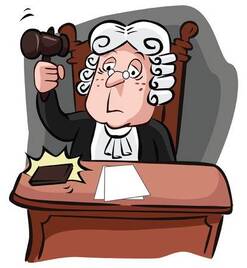 Being judged by different standards Being judged by different standards For some reason, authors are judged by different standards to other creative artists. So, what is the difference? It is something of a mystery to us here at Selfishgenie Publishing, as I’m sure it is to all those Indie authors who are reading this right now. Is there an answer to this? Only in the form of a Catch-22 type scenario. You will sell more books when you become famous, but to become famous you first have to sell more books. 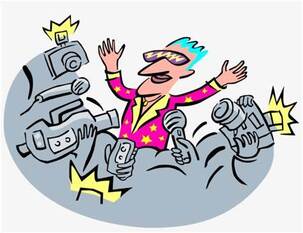 Celebrity Author Celebrity Author It is sickening to see many famous people with limited writing talent getting ‘their’ books published just because of their name. The publishers know that the book will sell because of the name on the cover, so they’ll hire a ghost writer to make the book readable. That’s not to say all celebrity authors are bad. I’ve read a few that were pretty good (Richard Osman, to name but one). But we know that a footballer or reality TV ‘star’ who can barely string 3 words together to form a meaningful sentence, isn’t going to be capable of writing War And Peace. But there is one thing all the Indie authors can do to support each other – and I don’t mean doing all those annoying #writerslift thingies.  #WritingCommunity - support Indie Authors! #WritingCommunity - support Indie Authors! Just pick one Indie author a month and buy their book, then post reviews on all the relevant sites. You don’t have to go on Twitter to ask for recommendations - most of those are just people trying to boost their follower numbers anyway. No, all you have to do is quietly browse through the profiles of your own followers who are authors and see what sorts of books they write. If they are in the genre you read, buy a copy. If not, move on to someone else. There’s no need to make a big deal of it; no need to Tweet them to say ‘I bought your book’ - that looks like you are looking for thanks and sounds needy. It may even be interpreted as a suggestion that they buy your book in return, which isn't what is intended. But if you post a review, you could Tweet the link to that so other people know how good the book is and may be encouraged to buy it. We often use the hashtag #WritingCommunity, so let’s act like a community and support each other, not through words alone, but also through deeds. And the best present you can give an Indie author is to buy one of their books. And if you are looking for a place to start, then you are already on a suitable website. Just click the Books tab at the top of the page. If you have enjoyed this blog and don't want to miss the next edition, be sure to sign up for our newsletter. We'll be so grateful, we'll even send you a free ebook. Just click the button below. 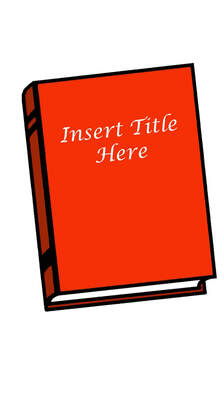 Picking a title for a book isn’t always easy. Sometimes the title picks itself, based on the plot or the leading character. But sometimes it isn’t quite so obvious. “Oranges Are Not The Only Fruit” by Janet Winterson, for example, isn’t a title that you might associate with a book about “religious excess and human obsession”, to quote from the book’s blurb. But it’s a best seller, so its readers obviously weren’t the type to be put off by an opaque title. However, is there more to it than just a having snappy title? What if you are publishing a collection of work that has been previously published. This happened to one of our authors, Robert Cubitt. 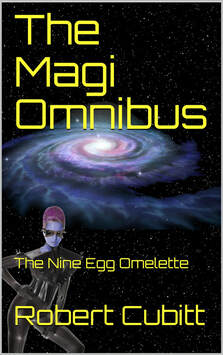 He had published a series of nine sci-fi novels under nine different titles, but the series collection was called, simply, “The Magi”. If anyone has read the book then that title makes sense, because the series is all about the search for the Magi, who are the rulers of the galaxy and they’ve gone missing. So far, so good. Each book in the series has its own title, but the first book gives the series its collective name. But what do you call the collection when you put all 9 books out under a single cover? Robert chose to call it “The Magi Omnibus”. It made sense to him, because an omnibus, as well as being a mode of transport, is a collection of stories either with a common theme or by the same author. So, tick the box on both counts. For the same reason the title also made sense to us. "sales started to tick upwards at once" But it turns out that not everyone seems to know that the word omnibus means a collection of work. The word has become old-fashioned, out of date. It also doesn’t resonate with non-UK readers. Robert’s generation grew up on the omnibus edition of “The Archers” broadcast on the radio every Sunday morning, which is all 5 daily episodes, each of 15 minutes duration, broadcast as a single 75 minute edition. There are also omnibus editions of some TV soap operas, such as Eastenders and Coronation Street. So, you would think that the term omnibus would be well known. 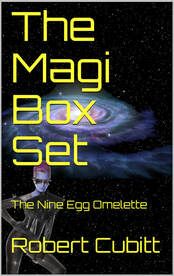 It appears we were wrong about that. While we weren’t looking, the omnibus has been replaced by the “box set”. And that was reflected in our sales for the collection. We were getting plenty of clicks on links to the book’s sales pages, but no buyers. We can only assume that potential purchasers were confused by the title, thinking it referred to the aforementioned mode of transport. So, we retitled it as “The Magi Box Set” to see what would happen. And sales started to tick upwards at once. It seems that the readers of sci-fi are happy to buy a box set, but they aren’t interested in buying an omnibus. 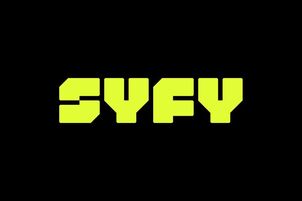 OK, lesson learnt. A title change can make all the difference in the world for some books. So, if your book isn’t selling, you might want to ask yourself what the title is saying to your potential readers. Ours was obviously saying “Radio 4” when we wanted it to say SYFY Channel or Netflix. This isn’t a phenomenon that is unique to the publishing industry. Plenty of films have been retitled because the original title didn’t go down well with test audiences, either at home or abroad. I’ll give you an example. The film “The Madness George III” was retitled “The Madness of King George” for the American market, because the producers thought that with so many films being released in series (eg Rocky, Rocky II, Rocky III etc), audiences might not go to see the film because they might think they’d missed The Madness of George I and II. Mad Max is a well-known film name these days, but very few people in the USA had seen the first film in the series, so when the second film was released in the USA it had a name change to “The Road Warrior” without any reference to Mad Max – and it worked  Will Smith in "Hancock" Will Smith in "Hancock" You may be familiar with “Indiana Jones and the Raiders of the Lost Ark” and if you are, you didn’t see it when it was originally released – or your memory is playing tricks on you. When it was released in 1981, it was just “Raiders of the Lost Ark” and was retitled later by George Lucas in order to fit in with the titling of the sequels, which did use the style “Indian Jones and ….” The Will Smith superhero movie “Hancock” (2008) didn’t start out with that name. It had the very generic title of “Tonight He Comes”. Would you have gone to see it with that title? It might have worked in the 1930s, but not in the modern market. So, if your book isn’t setting the reading world on fire, you might consider a change of title. But do include a note inside giving the original title, so people will know if they have already read it. No point in upsetting people by letting them buy the same book twice. Amazon gets a bit touchy about that too. Would you like a full-length eBook for free?* Of course you would. All you have to do is sign up for our newsletter to qualify. Just click the button. *Excludes "The Magi Box Set". |
AuthorThis blog is compiled and curated by the Selfishgenie publishing team. Archives
March 2025
|
 RSS Feed
RSS Feed